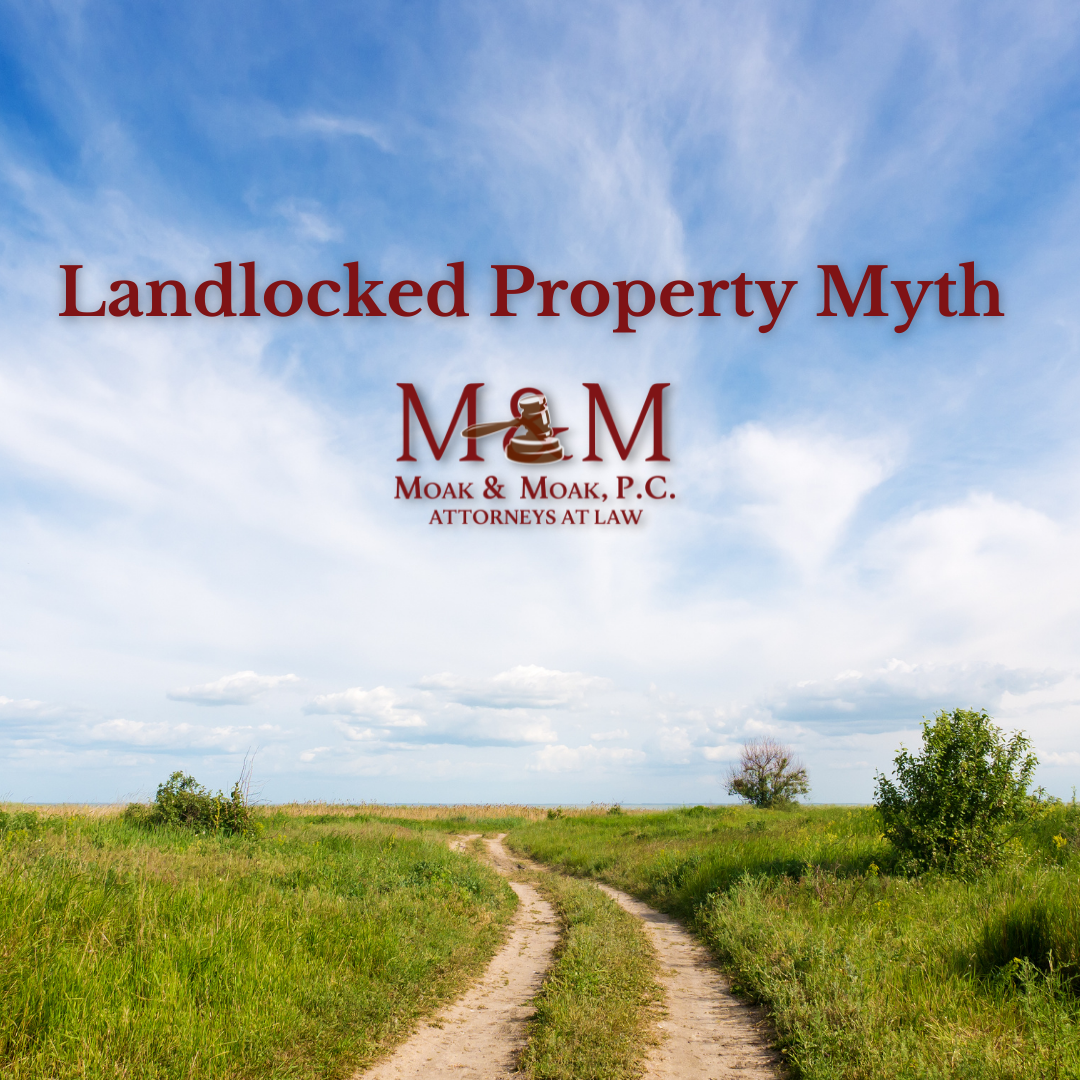By Sam A. Moak
A common legal myth that is often heard in cafes and barber shops around Texas is that property cannot be landlocked because a neighboring landowner is required to allow entry. This is simply false. Understanding this can be important for both the landlocked owners and neighboring landowners so that each party understands his or her rights.
Under Texas law, absent an easement or other right of access legally obtained, property certainly can be landlocked. This can cause problems for a landowner in regard to the marketability of the property. First, title companies are usually unwilling to insure title to a property that lacks access, so, without access, the property will likely be difficult to sell to any party desiring title insurance. Second, without insurable title, a lender is very unlikely to loan money against the property. Given this, it is prudent for a landowner to seek some sort of legally enforceable right to access the property.
Although there is no automatic right to access landlocked property, there are a number of options a landowner may consider and seek to utilize in order to obtain legal access to property.
Likely the easiest way to obtain access to landlocked property is to obtain an express easement from a neighboring landowner. This easement should be in written form, signed by the grantor, specifically identify the property and details of the allowed easement use, and be filed in the official public records of the county. If a neighbor refuses to grant this type of express easement, a landlocked owner will likely be forced to look elsewhere for access.
In the event an express easement cannot be obtained, an easement by necessity may be a method by which a landlocked owner can obtain access. However, there are specific facts which must be proven in a lawsuit in order to obtain an order granting this type of easement. The cost of litigation itself may make this too expensive an option to pursue.
Another option for a landlocked property owner may be to consider the elements of a prescriptive easement. Again, this would require filing a lawsuit and would only apply in narrow circumstances. Importantly, if the landlocked owner had permission to use the easement, there can be no finding of a prescriptive easement. A person claiming the prescriptive easement must prove he or she has used the easement for a least 10 years, and the use was (1) open and notorious, (2) continuous, (3) exclusive and (4) adverse (without permission).
In the event the person seeking to obtain an easement can show a representation that an easement existed and detrimental reliance on that representation, an easement by estoppel may be a possible solution. Yet again, this requires an expensive lawsuit.
Finally, another option for landowners may be a statute in the Texas Transportation Code that allows a landlocked landowner to seek a public road from the commissioners court for the county. While this may not require a lawsuit, it does require the landowner to file a swore application with the county commissioners’ court, notice must be given to each property owner who would be effected, and a hearing on the application will be held. If the commissioners’ court determines the landowner has no access to their land, the court may issue an order creating a public road. Damages to affected property owners will be provided in the same manner as for other public roads, and the county pays all costs in connection with proceedings to open a road. Thus, because of the cost to the county, this may not be a viable option. The county commissioners are not required to provide the road. It is within their discretion.
Additionally, there may be some reason for concern over whether a road created under this method could potentially be an unconstitutional taking of private property. The Texas Supreme Court held a prior version of the statute authorizing this method unconstitutional as it found a commissioners’ court could not take private property for a private use.
If you find yourself the owner of landlocked property, do not go to the cafe’, barber shop or water cooler for advice. Consulting an attorney familiar with real estate law to help you in this area is very important.
The information in this column is not intended as legal advice but to provide a general understanding of the law. Any readers with a legal problem, including those whose questions are addressed here, should consult an attorney for advice on their particular circumstances.
Sam A. Moak is an attorney with the Huntsville law firm of Moak & Moak, P.C. He is licensed to practice in all fields of law by the Supreme Court of Texas, is a Member of the State Bar College, and is a member of the Real Estate, Probate and Trust Law Section of the State Bar of Texas.

